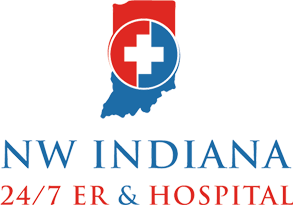Did you know, almost half of all Americans are living with high blood pressure, and most don’t even know it?
High blood pressure, also referred to as HBP or hypertension, is when the force of blood pumping through your blood vessels is too high. Usually, high blood pressure doesn’t show signs, but there are certain lifestyle choices that can put you at risk.
Factors that can raise blood pressure include:
- Stress
- Caffeine
- Exercise
- Medications
- Cold temperatures
- Smoking
It’s important to monitor your blood pressure frequently to avoid health complications untreated high blood pressure can cause. There are two numbers to check when measuring blood pressure: the systolic mm Hg (top number) and the diastolic mm Hg (bottom number).
Blood Pressure Categories
According to the American Heart Association, there are five categories for blood pressure:
Normal: Numbers under 120/80 mm Hg are considered normal. If your numbers fall within this range, continue regularly exercising and eating a balanced diet.
Elevated: When numbers typically range from 120-129 systolic, and less than 80 mm Hg diastolic, it’s considered elevated. Unless proper measures are taken to lower these numbers, people with elevated blood pressure are highly likely to develop high blood pressure.
Hypertension stage 1: This occurs when within the range of 130-139 systolic or 80-89 mm Hg diastolic. Once this stage is met, doctors will suggest lifestyle changes and may prescribe blood pressure medication if you have a higher risk of cardiovascular disease.
Hypertension stage 2: If blood pressure numbers are rising and hit 140/90 mm Hg or higher, it’s considered stage 2. At this point, doctors will most likely prescribe medication and strongly encourage lifestyle changes.
Hypertension crisis: At this stage, immediate medical attention is required. If blood pressure rapidly exceeds 180/120 mm Hg, seek help from your primary healthcare provider. If symptoms of organ damage arise, like chest and back pain, numbness or weakness, changes in vision, shortness of breath, or difficulty speaking, immediately call 911 or come to our facility at 7904 Cabela Dr., Hammond, IN.
For more information, click here for a visual chart categorizing number ranges.
Do you know your blood pressure levels? If not, please take this as a sign to schedule an appointment with your doctor, or visit us for a reading!
Heart Health
Untreated high blood pressure can cause a multitude of health issues and complications, including heart failure, heart attack, stroke, and more.
Congestive Heart Failure occurs when the heart has trouble pumping blood correctly, and there are more than 200,000 cases of it every year in the United States. The good news is, according to the CDC, 80% of cardiovascular disease, including heart failure, are preventable by reducing risk factors like high blood pressure.
Including high blood pressure, other cardiovascular risk factors are:
- Diabetes
- Obesity
- Coronary Artery Disease
- Sleep apnea
- Alcohol use
- Tobacco use
Maintain Your Weight
Excess weight carried around the waistline is proven to increase the chances of high blood pressure. With diabetes and obesity being two leading causes of hypertension, controlling a healthy weight is an excellent way to lower your risk.
Ten tips to help maintain your waistline:
- Drink coffee or tea to boost your metabolism
- Eat your food slowly to avoid overeating
- Drink a glass of water 30 minutes before a meal
- Steer clear of sugary drinks (soda, Frappuccino, juices, energy drinks, etc.)
- Make sleep a priority every night
- Eat clean, whole, unprocessed foods
- Eat soluble fiber like seeds, nuts, beans, etc.
- Have an accountability partner
- Stay busy throughout the day
- Plan out your meals ahead of time
Get Moving
Apart from diet, exercise is the greatest tool for lowering blood pressure, maintaining a healthy BMI, and improving heart health. In addition to the positive benefits it can have on our heart, exercise is also known to improve our mood, boost our immune system, help us sleep better, and reduce our risk of chronic diseases. It’s a win-win situation!
Here are the top blood-pumping exercises that support cardiovascular health:
- Strength training
- Running
- Swimming
- Cycling
- Jumping Rope
- Kickboxing
- Dancing
- Climbing stairs
- Hiking
- Brisk walking
Not only will you look your best, but you’ll feel your best after incorporating daily exercise and clean eating habits into your life.
Get Screened
Are there parts of your lifestyle you could improve to support a healthier heart? Use this online tool to calculate your cardiovascular risks and see what changes you can make for a healthier life!
If you or a loved one are concerned about your blood pressure or cardiovascular health, we’re here to help. Our full-service emergency room and hospital are equipped for any type of medical care—from blood pressure readings to heart attacks, we’ve got your back. Our patients’ health is our number one priority, and our services are available 24/7, 365 days a year, with no appointment necessary.
Disclaimer: As a service to our readers, NW Indiana ER & Hospital and Nutex Health state no content on this site, regardless of date, should ever be used as a substitute for direct medical advice from your doctor or other qualified clinicians.



0 Comments